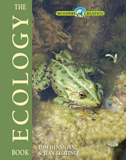Cowbirds—Passing on Parenthood
These absent parents, extortioners, and interlopers are a reminder of the fall. But their intelligence showcases the Creator’s brilliant design.
The teenagers waited until just after sundown to make their move. Their peers were throwing a party, and they weren’t about to miss it. All was quiet when, to the teens’ delight, their foster parents were distracted enough for them to fly the coop. They silently glided out of the nest, through the forest, and around the last tree. The site of their secret rendezvous opened before them as they joined the others in the open meadow.
These teenagers were birds of a different feather from their foster parents—literally. To be exact, these cowbird teens belong to the blackbird family in the sparrow/finch kind. Cowbirds are passerines, or perching birds. About five cowbird species live in North, Central, and South America. One of the most common species in North America is the brown-headed cowbird (Molothrus ater).
Cowbirds may fraternize with flocks of up to 100,000 feathered friends during winter, and may migrate over 500 miles between winter homes and breeding sites. But their real claim to fame is that they are brood parasites. “What’s a brood parasite,” you might ask? Well, it’s a bit gruesome. But while the cowbird’s behavior is a sobering case of the curse on creation, its intelligence is a tribute to the brilliant Creator.
Criminal Activity
Brood parasites lay their eggs in nests that belong to other birds. Like hens, mama cowbirds are egg-laying machines, and after laying a clutch of eggs in one nest, they are ready to go elsewhere and do it again in another nest . . . and another . . . and another, potentially laying 70 eggs within a single season. But mama cowbirds don’t stop at nest appropriation. They also let the other mamas raise their babies for them.

Photo by PAUL J. FUSCO / SCIENCE SOURCE
Female cowbirds lay up to 70 brown-speckled eggs a year—in other birds’ nests.
Sacrifice or Survival
Amazingly, mama cowbirds may parasitize the nests of as many as 220 different species of birds. Some of these other birds can actually recognize the eggs of the cowbird interloper and either destroy them or rebuild a nest over them. On the other hand, some bird species don’t seem to notice the extra-large cowbird eggs and foster the hatchlings as if they were their own. But cowbird eggs often hatch sooner than the mother’s eggs, giving the cowbirds a head start on growing. Often larger than the other chicks, the baby cowbirds may push the brother from another mother out of its own nest or smother it.
Birds of a Feather

Scientists have wondered why baby cowbirds don’t rapidly learn to recognize and follow their foster parents like some other birds do (a behavior known as imprinting). Interestingly, cowbird chicks seem to resist imprinting for a couple of reasons. First, research indicates that when the foster birds are away, mama cowbirds may check in with their chicks periodically. Second, at about 20–25 days old, fledgling cowbirds do indeed sneak out at night and meet others of their kind to socialize for a few hours before flying home to the foster nest at daybreak.
Consequences of the Curse
So how does the death and suffering caused by the cowbird’s behavior line up with a good Creator? This tension reminds us of the tragedy of man’s disobedience toward God. Genesis 1–2 shows that God’s desire in the beginning was to make a very good creation and a creature that bore his image—mankind. Humanity would not only represent God but also enjoy deep and loving fellowship with him. It was a match made in heaven. But in Genesis 3, we see that the first man and woman rebelled against God. As a consequence, God placed a curse on creation. The tragic consequences of this curse are still profoundly felt today. A ruptured relationship between God and humankind has led to all kinds of pain, suffering, and death. Unfortunately, animals, like cowbirds, are not exempt.
Bad Eggs?
The tragedy is acute, but we shouldn’t just dismiss the cowbird as a bad egg. This bird is still a source of wonder because its design and intelligence, despite being used for devious purposes, are the products of a creative Genius. Although “the whole creation has been groaning” since the fall (Romans 8:22–24), the cowbird’s Designer is a God who treasured us so much that he made a way to restore a relationship with him through Jesus and has promised to redeem creation. We can look forward to the day when God removes the curse and does away with its consequences of death and suffering—a day when cowbirds will lay eggs in their own nest.

Bison and cattle stir up a bug buffet that cowbirds can’t resist.
Did You Know . . .
- Cowbirds get their name because they follow cattle and bison and eat the insects scared up from the brush.
- To consume enough calcium to make all their eggs, cowbirds eat snails and other bird eggs.
- Cowbirds scope out target nests days ahead of time.
- Cowbird eggs are often larger than the other birds’ eggs.
- Because the brown-headed cowbird is a protected species, taking an egg without a permit is illegal.
- Cowbirds are brood parasites along with indigobirds, honeyguides, and some cuckoos.
- In the Midwest, the Kirtland’s warbler was once endangered because it lacked the defenses to protect its nest and young from cowbirds. The state of Michigan’s cowbird removal program greatly increased the warbler population.
Answers Magazine
October–December 2020
When it comes to creation care, Christians have a deeper calling than secular environmentalists.
Browse Issue SubscribeRecommended Resources

Answers in Genesis is an apologetics ministry, dedicated to helping Christians defend their faith and proclaim the good news of Jesus Christ.
- Customer Service 800.778.3390
- © 2024 Answers in Genesis





